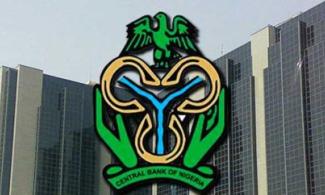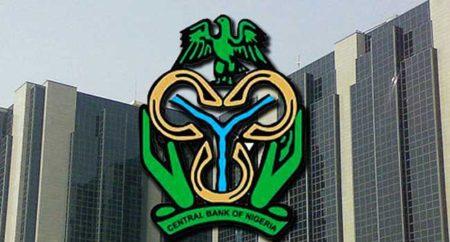
Despite promising to lower inter-bank lending rates when inflation figures are at low double-digit level or slide to single figure, eight of the nine members of the committee voted to maintain status quo, while the remaining member voted for a tightening of the monetary policy.

The Central Bank of Nigeria (CBN) has declared its readiness to penalize banks and other financial institutions that are unwilling to lend money to operators in sectors of the economy that produce goods and provide services.
The announcement was made on Wednesday by Mr. Godwin Emefiele, the CBN Governor, while fielding questions from journalists after the Monetary Policy Committee (MPC)meeting.
The apex bank governor also disclosed that financial institutions, which lend money to the real sector, will be rewarded.
He said the CBN was in the process of reaching decisions that will determine the level of reserves each bank holds. He explained that banks that reserve their liquidity and resort to trading in government securities or lend money to foreign exchange traders instead of the real sector would be penalized.
The CBN policy team, however, elected to maintain all its money control levers at prior rates. For the eleventh time, interest rate was left at 14%. This is the percentage at which banks can lend to each other. As such, loans from multilateral development banks (MDBs) to borrowers will remain in the 20% bracket.
Mr. Emiefiele ascribed the decision to leave the rates as they have been on the delayed passage of the budget, double-digit inflation rate, currently at 12.48%, and pre-election spending.
“The committee considered the forecast of high liquidity injection in the second half of 2018, upward pressure of prices driven largely by the substantial expansion of fiscal policy, which will arise from the late passage of the 2018 Budget; outstanding balance from the 2017 Budget and the pre-election expenditure,” he explained.
Despite promising to lower inter-bank lending rates when inflation figures are at low double-digit level or slide to single figure, eight of the nine members of the committee voted to maintain status quo, while the remaining member voted for a tightening of the monetary policy.
“It is very true that we said until inflation drops to single digit before we will take a decision on reducing the interest rate, but you will also observe that in the course of this presentation, we explained the expansion of fiscal activities that we foresee, beginning from around May or June this year.
“At this time, the fact that we are still on the 2017 Budget, the 2018 Budget will eventually kick in around June or July," he said.
“There will be an acceleration in the rate of spending and we also expect a lot of election spending,” the CBN boss explained. He added that loosening the monetary levers can cause a reversal of the economic gains already achieved.
“These indications, expectedly, are meant to expand the economy and spur growth, which I will say is commendable. But we also know that those expansionary fiscal measures will gradually lead to an inflationary increase and if that happens, it will reverse the gains we have recorded over time."
Mr. Emefiele equally disclosed that a framework for the currency swap deal with the People’s Bank of China (PBoC) will be agreed on next week, adding that the deal will bring a lot of positivity to Nigerian traders, contrary to media reports.
“I must say congratulations to Nigeria. After a rigorous almost two and half years of negotiations with the People’s Bank of China, we eventually struck the deal for a currency swap deal between Nigeria and China, with the intention of boosting trade relations between both countries.
“Like you all know, it will just operate in the normal format or LC (letter of credit) transactions.
“There are some importers from England, who will issue invoices in pounds sterling if you want to import goods from England or in Europe, they will issue you invoices in Euro as against the dollar if the choice is theirs.
“Under the China-Nigeria deal, by the time the framework is released, we would begin to see, based on negotiations with Nigerian suppliers,
that Chinese suppliers would begin to issue invoices in naira,” he stated.
He explained that China is Nigeria’s largest trading partner, controlling about 35per cent of total trade, a situation that suggests that by the time the framework is concluded more invoices would be issued in the local currency against the dollar.
“I have read some newspaper reports on the currency swap deal, but I can tell you it is going to be positive and I repeat, strongly positive for Nigeria; for Nigerian imports and also for Nigerians.
“That is what we expect and we would ensure that we achieve that,” he declared.
Some analysts, however, believe that the size of the swap is a lot less than desirable.
Mr. Adetokunbo Kayode, President of the Abuja Chamber of Commerce and Industry, said the volume of bilateral trade between Nigeria China stood at $2.7 in 2017.
The deal will last for three years and renewal options have not been discussed.